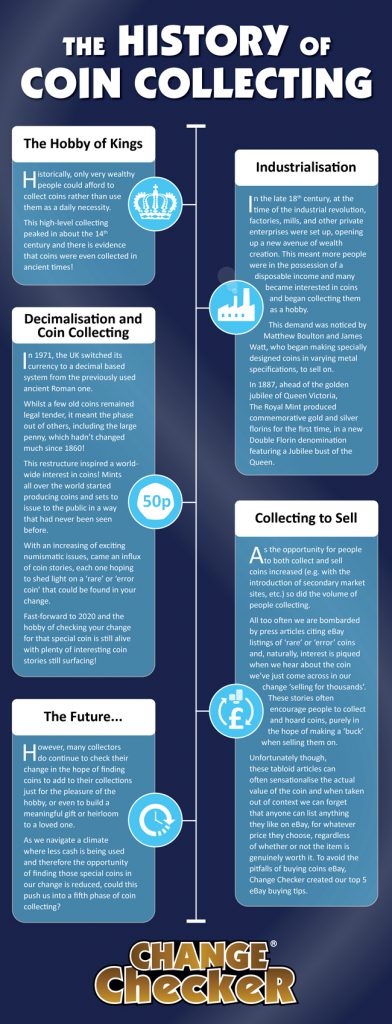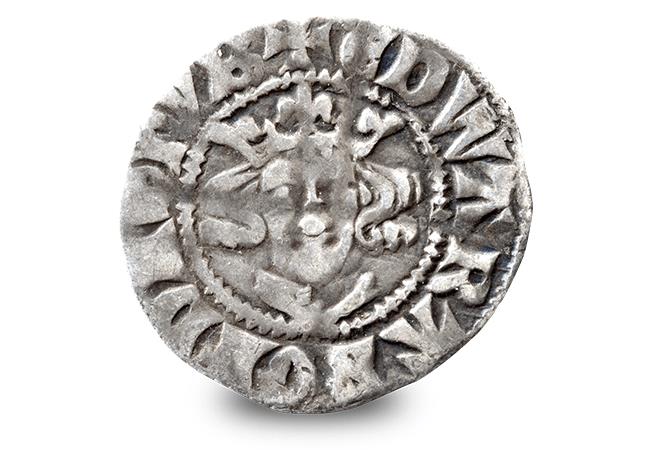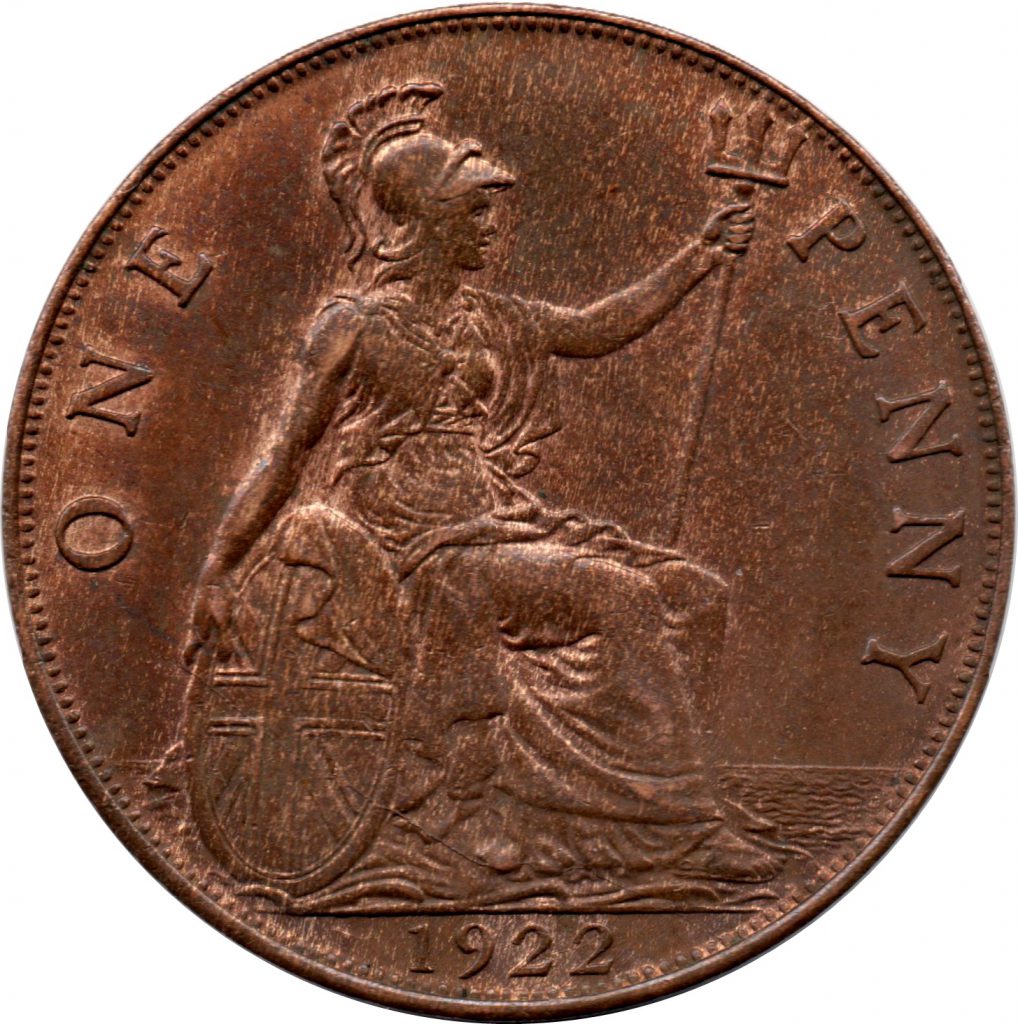The History of Coin Collecting
Coin collecting is a hobby that spans across generations, but did you know it also spans across centuries?
In this blog, we talk you through the different phases of coin collecting!

The Hobby of Kings
Historically, only very wealthy people or royals could afford to collect coins rather than use them as a daily necessity.

This high-level collecting peaked in about the 14th century and there is evidence that coins were even collected in ancient times!
Industrialisation
In the late 18th century, at the time of the industrial revolution, factories, mills, and other private enterprises were set up, opening up a new avenue of wealth creation. This meant more people were in possession of a disposable income and many became interested in coins and began collecting them as a hobby.
This demand was noticed by Matthew Boulton and James Watt, who began making specially designed coins in various metal specifications, to sell on.
In 1887, ahead of the golden jubilee of Queen Victoria, The Royal Mint produced commemorative gold and silver florins for the first time, a new Double Florin denomination featuring a Jubilee bust of the Queen.

This was to start a tradition of producing ‘special’ coins to mark particular historic or royal anniversaries that carried through to the 20th century.
Decimalisation and Coin Collecting
In 1971, the UK switched its currency to a decimal based system from the previously used system dating back to ancient Roman times.
Whilst a few old coins remained legal tender, it saw the phase out of others, including the large penny, which hadn’t changed much since 1860!

This restructure inspired a world-wide interest in coins! Mints all over the world started producing coins and sets to issue to the public in a way that had never been seen before.
With an increasing of exciting numismatic issues, came an influx of coin stories, each one hoping to shed light on a ‘rare’ or ‘error coin’ that could be found in your change.
Fast-forward to 2020 and the hobby of checking your change for that special coin is still alive with plenty of interesting coin stories still surfacing!
Collecting to Sell
As the opportunity for people to both collect and sell coins increased (e.g. with the introduction of secondary market sites, etc.) so did the volume of people collecting.
All too often we are bombarded by press articles citing eBay listings of ‘rare’ or ‘error’ coins and, naturally, interest is piqued when we hear about the coin we’ve just come across in our change ‘selling for thousands’. These stories often encourage people to collect and hoard coins, purely in the hope of making a ‘buck’ when selling them on.
Unfortunately though, these tabloid articles can often sensationalise the actual value of the coin and when taken out of context we can forget that anyone can list anything they like on eBay, for whatever price they choose, regardless of whether or not the item is genuinely worth it. To avoid the pitfalls of buying coins eBay, Change Checker created our top 5 eBay buying tips.

However, many collectors do continue to check their change in the hope of finding coins to add to their collections just for the pleasure of the hobby, or even to build a meaningful gift or heirloom to a loved one.
As we navigate a climate where less cash is being used and therefore the opportunity of finding those special coins in our change is reduced, could this push us into a fifth phase of coin collecting?
Secure the History of Britain in Coins Collecting Album!
Secure one to your collection today by clicking here >>

